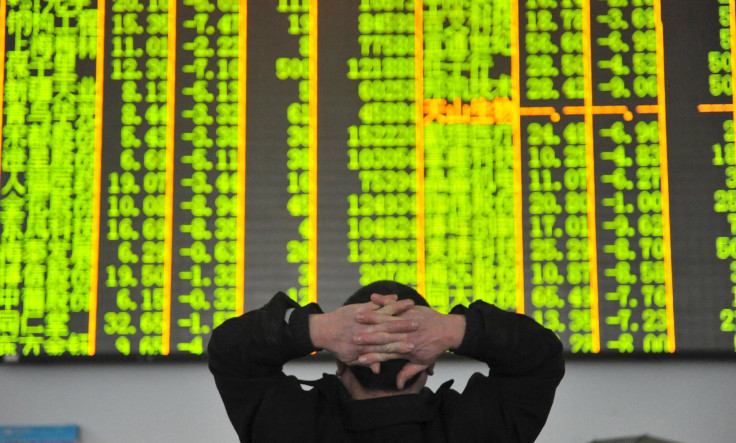Chinese Stocks Drop To Lowest Levels In Over A Year After Oil Falls Below $30 A Barrel

Chinese shares tumbled to their lowest levels in over a year Tuesday as tanking oil prices prompted a major sell-off in late trade. Other Asian markets were also dragged down by the rout in China and falling oil prices, while European markets opened broadly lower.
The Shanghai Composite index plunged 6.4 percent, ending the day at its lowest level since the beginning of December 2014, while the smaller Shenzhen composite index dropped over 7 percent, after oil extended last session’s sell-off.
So far this year, the highly volatile Shanghai Composite index has slumped over 22 percent — a drop caused largely due to the precipitous fall in the price of Brent Crude, which was last trading at $29.3 a barrel, and confusion over the Chinese central bank’s foreign exchange policy.
“Investors tend to see the decline of oil as a direct indication of slower global growth and weakness in emerging-market economies,” Toshihiko Matsuno, chief strategist at SMBC Friend Securities in Tokyo, told Bloomberg. “This is making the overall atmosphere worse.”
Also on Tuesday, Japan’s Nikkei 225 index ended the day down 2.35 percent, while in South Korea, where investor sentiment was hurt by data showing that the country’s economy grew at a slightly lower rate in the last quarter of 2015 from the previous three months, the Kospi Composite index closed down 1.1 percent.
In Europe, the markets seemed poised to face another day of volatile trade dominated by worries over the health of global economy. The pan-European Stoxx 600 plunged 2 percent at the open, before recovering slightly to trade down 1.4 percent.
London’s FTSE 100, France's CAC 40 and Germany’s DAX index were all down over 1.2 percent in early trade Tuesday, taking their cue from Asia’s overnight performance.
“Anxiety is on the rise regarding the outcome of Fed and BoJ [Bank of Japan] meetings this week with much debate about whether the former hiked too early,” Mike van Dulken, head of research at Accendo Markets, told the Telegraph. Speculation is rife that Japanese policymakers will announce stimulus measures at the BoJ meeting later this week, while the U.S. Fed is widely expected to refrain from changing its current monetary policy.
Meanwhile, markets in the U.S., which closed in the red Monday, are unlikely to do much better Tuesday. Futures trading suggested that Wall Street stocks would continue their sell-off, reflecting widening concerns over global growth.
© Copyright IBTimes 2024. All rights reserved.












